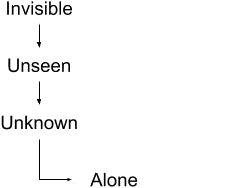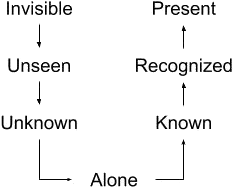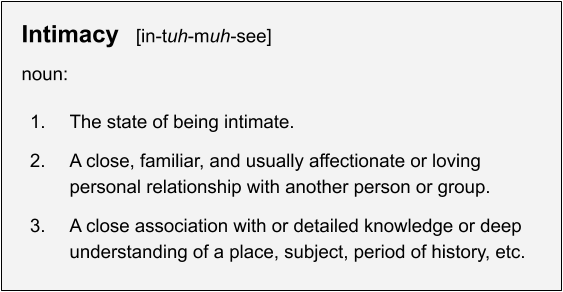This post describes, in part, the effects of a degenerative neurological condition called Huntington’s Disease. Any negative behavior on the part of my wife should be attributed to that condition. Any negative behavior on the part of myself should be attributed to my need for God’s ongoing grace.
Perhaps because we have all been confined here at home due to this virus, or perhaps just because things always get worse, this week has been something of a mess. Early on, I had hopes that things might get a bit better because Janet and I talked on the phone with her neurologist and Janet agreed to try an additional medicine (Klonopin) to help with her mood and chorea. Unfortunately, in the 24 hours between the phone call and being able to pick up the medicine, Janet changed her mind again and decided that she would try it, but only after her bowels got sorted out. Translation: She’ll take the new med when pigs fly!
Subsequently, I have spent a lot of time this week crying over losses – a situation exacerbated no doubt by my inability to sleep through the night. The world seems overflowing with things to fret about. Things like dear friends being in peril, from viruses – and other things. Then there are the hopes that seem to revive and then deflate, all within a few hours. As roller coasters go, the one I’m riding now pretty much stinks. The problem of course is that with a physical ‘coaster you get to experience thrills and chills, but in a safe environment where no one is ever really in danger. Unfortunately, with the one that I’m on, people really die. The “thrills and chills” come from trying to figure out whether they are going to die now or later.
People who have been following this blog for a while know that my Janet most-likely inherited HD from her father. Long time readers will also remember that he and I never got along very well. In fact, harsh words often passed between us. Or they did at least until one day when Janet and I went to see him while he was in a hospital towards the end of his life. At one point he got Janet and her mother out of the room on the thinnest of pretenses:
“Mena, why don’t you take Janet and show her the cafeteria in this place, it’s very nice.”
The cafeteria? Really? What could this be about? As soon as they were gone, he called me to his bedside and held out his right hand. When I took it he said,
“I just wanted to tell you that I’m sorry. You are a good man and I am glad you married Janet.”
I thanked him, and shook his hand. After that we sat quietly until the ladies got back from their “tour” of the hospital’s culinary facilities – each of us deep in our own thoughts. A few weeks later, Janet’s dad was dead.
The reason that I am bringing this up, is that this morning, Janet (in a rare moment of mental and verbal clarity) told me that she was grateful for all the things I had done for her, and that I had been a “good husband”. Soon, however, the HD closed back in and I was back to being an insanely huge mistake in her life.
Please excuse the language, but roller coasters are a bitch.
Today, as I write this, it is Good Friday. To modern Christians, it is certainly a strange name for an admittedly strange holy day. It commemorates the death of Jesus on the cross. Especially now, in the midst of a pandemic panic, why would that death, or any death for that matter, be considered “good”?
And what are we supposed to do with Good Friday anyway? We certainly don’t run around telling one another, “Merry Good Friday!” The problem with Good Friday is that the holiday and the name come from a time before we (individually) became the center of the universe. It was born out of a culture where sacrifice was seen as a noble thing – and not at all stupid, offensive or degrading. But mostly, it came from a time when people were able to maintain perspective about the importance of experiences and situations.
In some ways, a lack of perspective may be a uniquely American problem. After all, our mere 250 years of existence is quite literally the blink of an eye in the overall flow of history. Not long ago I was talking to someone from Italy about the virus and my concern for the health of her family. Her advice: “Don’t worry ahead of time. God takes care of things.” In these situations, Italy has the advantage of millenia of historical perspective. Within just the past 100 years, they have had to deal with not one but two world wars that were fought at least partially within their own national borders. Unlike the US, for whom both wars were “over there”. And when the pandemic did come knocking, they did what needed to be done, but didn’t abandon community. Instead they moved to their balconies and had nightly distributed concerts and community sings. They played, sang and cheered for each other because they knew that when this plague passed – and plagues always do – life resumes. So while the loss of life is tragic, only the loss of community would be truly catastrophic.
By contrast, here people are in a tizzy over the fact that 100,000 people could die from this virus while ignoring the fact that this total is still thousands short of the death toll that the seasonal flu racks up every year. To be clear, if the death toll rises that high, every one of those deaths will be a tragedy, but how about a little perspective? Look up the number of people who die from things like heart disease, cancer, suicide or even childbirth. Moving closer to home, what is the annual death toll of degenerative neurological diseases? Although there are arguments over the exact number, some reports show that for Alzheimer’s alone, the US total could be over 500,000. Every. Single. Year.
Perspective…
Another thing that would be nice is to be able to get the facts of what we are going through right now with a lot less sensationalism. The other day I saw a news story that described in excruciating detail (and with pictures!) how right now, all over the world, there are literally millions of medically untrained senior citizens providing the day-to-day care for loved ones with terminal diseases! This revelation might have been earth-shattering to the 20-something that “discovered” this fact, but for many of us, it’s not a revelation, it’s our life. Want to see a really scary number? Research the number of these “untrained senior citizens” (i.e. caregivers, like us) that die every year, decades before our peers. In one sense, this lack of recognition feels very familiar – I was, after all, in SAC (Strategic Air Command). Who knew or really understood what we did either?
Furthermore, consider this very blog. Who in blazes am I to be advising others? I’m just another medically untrained senior citizen who is trying to pass along what I am seeing and feeling and experiencing, and praying to God that I am doing even a few things right. I don’t enjoy flying by the seat of my pants, but what else is there? If Janet didn’t have me, she wouldn’t have anyone.
The bottom line is that we are all amateurs on this bus. We all have things to contribute and to learn. None of us are really prepared for the jobs into which we have been thrust. We all lean on and depend on one another. We all have a dirty job but we do it, even though it often means sacrificing years off of our lives. So perhaps Good Friday is, after all, the perfect time to acknowledge the “good” work we do. But it is also, without a doubt, the time to remind ourselves of a few things.
First, we don’t live in a “safe” world. None of us are guaranteed even the next five seconds. Something could happen before you finish reading this paragraph, and anyone who says otherwise is lying to you. Bottom line: life has a 100% fatality rate. The question is not whether you will die, the question is whether you will live before you do so. Second, this work isn’t about us – that is why it is called service. Consequently, whether we realize it or not, what we do does get noticed. Even without accolades from important people, ribbons or medals, what we do is seen by Someone. Third, we are never really in this fight alone. In addition to the globe-spanning support community that we have created for ourselves, The One who notices, is also The One who blesses, strengthens and sustains us. In the end, that support is our only real source of hope. And without that hope, we are (as Paul pointed out) above all people, most to be pitied.
In Christ, Amen ☩
A prayer for when you feel that the world is on your shoulders…
“Blessed are You, Lord God, King of the Universe. It is right that I should at all times and in all circumstances bless You for the world in which we live and the protection that You give us. But today I want to bless you especially for the strength and insight You provide to me. It is so easy for me to fall into the trap of believing that I am just a small cog in a very big machine. I know that most of the time, I can’t comprehend what it is that You are up to, but thank you for showing me the pieces that I can understand. Thank you for the courage to continue on when I seem surrounded by darkness and pestilence. I pray, Lord, that You will show me how to be a beacon of light and hope. Amen”



